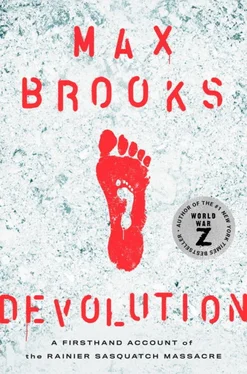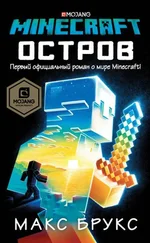I belong here.
From the American Public Media radio show Marketplace. Transcript of host Kai Ryssdal’s interview with Greenloop founder Tony Durant.
RYSSDAL: But why would someone, particularly someone used to urban or even suburban life, choose to isolate themselves so far out in the wilderness?
TONY: We’re not isolated at all. During the week, I’m talking to people all around the world, and on the weekends, my wife and I are usually in Seattle.
RYSSDAL: But the time you have to spend driving to Seattle—
TONY: Is nothing compared to how many hours people waste in their cars every day. Think about how much time you spend driving back and forth to work, either ignoring or actively resenting the city around you. Living out in the country, we get to appreciate our city time because it’s voluntary instead of mandatory, a treat instead of a chore. Greenloop’s revolutionary living style allows us to have the best parts of both an urban and rural lifestyle.
RYSSDAL: Talk for a minute about this “revolutionary living.” In the past you’ve described Greenloop as the next Levittown.
TONY: It is. Levittown was the prototype for prosperity. You had all these young GIs coming home from World War II, newly married, anxious to start a family, hungry for a home of their own, but without the means to afford one. At the same time, you had this revolution in manufacturing; streamlined production, improved logistics, prefabricated parts… all from the war, but with tremendous peacetime potential. The Levitts were the first to recognize that potential and harnessed it into America’s first “planned community.” And they built it so fast and cheap that it became the model for modern suburbia.
RYSSDAL: And you’re saying that model’s run its course.
TONY: I’m not the one saying it, the whole country’s acknowledged it as far back as the 1960s when we realized that our standard of living was killing us. What good is all this progress if you can’t eat the food or breathe the air or even live on the land when the ocean rises up over it? We’ve known for half a century that we need a sustainable solution. But what? Turn back the clock? Live in caves? That was what the early environmentalists wanted, or, at least, how they came off. Remember that iconic scene in An Inconvenient Truth where Al Gore shows us a scale with gold bars on one side and Mother Earth on the other? What kind of a choice is that?
You can’t ask people to give up personal, tangible comforts for some ethereal ideal. That’s why communism failed. That’s why all those primitive, hippie, “back to the land” communes failed. Selfless suffering feels good for short crusades, but as a way of life, it’s unsustainable.
RYSSDAL: Until you invented Greenloop.
TONY: Again, I didn’t invent anything. All I did was look at the question through the lens of past failures.
RYSSDAL: You’ve been very critical of previous attempts…
TONY: I wouldn’t call it critical. I wouldn’t be here if it wasn’t for those who came before me. But you look at those huge, government funded eco-cities like Masdar [2] Masdar City: A sustainable city project built in Abu Dhabi, UAE.
or Dongtan. [3] Dongtan: A planned eco-city on Chongming Island, in Shanghai, China.
Too big. Too expensive. And definitely too ambitious for a post Sequestration [4] Sequestration: An act of budget austerity controls set in place by the Congress of the United States in 2013.
America. Likewise the smaller, Euro models like BedZED [5] BedZED: A sustainable community of one hundred homes completed in 2002 in Hackbridge, London, UK.
or Sieben Linden [6] Sieben Linden: An off-grid settlement in Germany.
are nonstarters because they depend on punishing austerity. I liked the Dunedin [7] Dunedin: An Eco Home Village in Dunedin, Florida, USA.
project in Florida. It’s comfortable and manageable, but it just doesn’t have any wow, and this…
RYSSDAL: We should note that Tony is gesturing to the houses and land around us.
TONY: Tell me this isn’t the definition of “wow”?
RYSSDAL: Is the story true about you hijacking a Cygnus corporate retreat and pitching the project only after you’d hiked them up here?
TONY: [ Laughs. ] I wish. They knew a sales pitch was coming, and they knew it had something to do with a plot of land that the federal government was planning to auction off to the private sector, but they didn’t hear my proposal until we were standing… actually… on the very spot we’re standing now.
RYSSDAL: And nature did the talking.
TONY: And me. [ Both laugh. ] Seriously, like Steve Jobs playing the orchestra, [8] While “I play the orchestra” was spoken by Michael Fassbender and written by Aaron Sorkin for the 2015 movie Steve Jobs, it cannot be confirmed that Jobs himself ever uttered this phrase.
my orchestra is this land. When you’re here, surrounded by it, connecting to it on a visceral level, you realize that that connection is the only way to save our planet. That’s been the problem all along, destroying the natural world because we’ve created so much distance from it.
I asked my friends at Cygnus to imagine two different endgames for this soon to be privatized land. Clear-cutting by a Chinese timber company or… or… the minimal footprint of a micro-eco-community that personified the new Green Revolution. Six homes, no more, ringing a common house in the top-down shape of a turtle, which, according to some Native American beliefs, is the foundation on which the world is built.
I described how the Tlingit-style houses would look like they literally grew right out of the forest.
RYSSDAL: Which you can see now.
TONY: Exactly, but what you can’t see is that these homes are all built from 100 percent recycled materials. Wood, metal, insulation are recycled blue jeans. The only new material is the bamboo for the floors. Bamboo’s really important to the planet. That’s why you see it growing all around the neighborhood. Not only is it one of the most versatile and renewable building materials ever, it also helps to sequester carbon. There are also what you’d call “passive elements,” like the giant floor-to-ceiling windows in the living room that allow you to warm or cool the whole house by raising or lowering the curtains.
But passive elements only go so far. When it comes to active, green technology, we’ve got it all. See how the roofs have this bluish-purple tint? Those are solar panels. Peel and stick, like old-fashioned wallpaper, and “triple junction” so they can harvest every photon on a cloudy day. And those converted amps are stored in Cygnus’s patented battery that not only fits invisibly into a wall, but is 13.5 percent more efficient than the competition’s.
RYSSDAL: Suck on that, Elon Musk.
TONY: No, no, I love Elon, he’s a good guy, but he does have some catching up to do.
RYSSDAL: Like the solar profit program?
TONY: Exactly. If you harvest more energy than you need, why not be able to sell it back to the grid? And I don’t mean a rebate like in some states, I mean sell, for cash, just like the Germans have been doing for almost two decades. That’s not technology, that’s just good business, making money while you sit on your ass.
RYSSDAL: And speaking of sitting on your…
TONY: I was getting to that. The houses don’t just harvest sunlight, they also collect methane gas from, wait for it, your own poop. Again, nothing new. Biogas has been used in developing countries for years. Even some American cities are tapping into the deposits from their own landfills. Greenloop’s taken all that hard-won experience and kicked it up to American suburban standards. Each house is built on a biogas generator that breaks down what you flush. But you don’t see it, or smell it, or even have to think about it. Everything is regulated by the Cygnus “smart home” system.
Читать дальше





![Traudl Junge - Hitler's Last Secretary - A Firsthand Account of Life with Hitler [aka Until the Final Hour]](/books/416681/traudl-junge-hitler-s-last-secretary-a-firsthand-thumb.webp)






